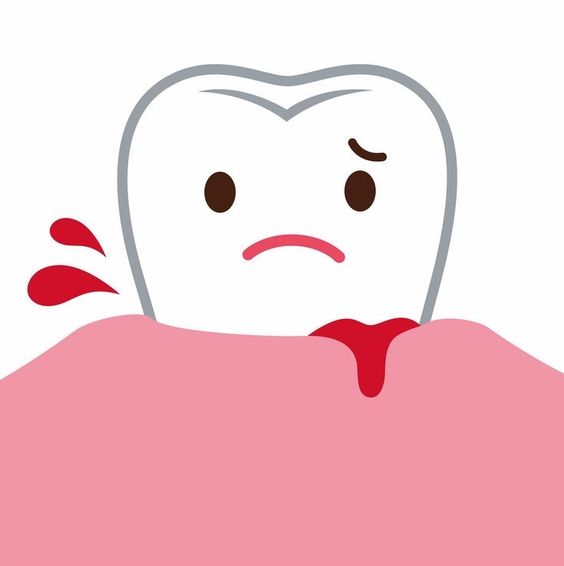Introduction:
Gingivitis is a common and mild form of gum disease (periodontal disease) that causes irritation, redness, and swelling of your gingiva, the part of your gum surrounding the base of your teeth. It's important to take gingivitis seriously and treat it promptly. Gingivitis can lead to much more serious gum disease called periodontitis and tooth loss.

The most common cause of gingivitis is poor oral hygiene. Daily brushing and flossing and regular dental checkups can significantly reduce your risk of developing gingivitis.
Symptoms of Gingivitis
Healthy gums are pink and firm. Some common symptoms of gingivitis include:
- Swollen or puffy gums
- Dusky red or dark red gums
- Gums that bleed easily when you brush or floss
- Tender gums
- Receding gums
- Persistent bad breath
- Pus between your teeth and gums
Causes of Gingivitis
The most common cause of gingivitis is poor oral hygiene that allows plaque to build up on the teeth and harden. Other factors that can increase your risk of gingivitis include:
- Tobacco use
- Diabetes
- Hormonal changes, such as those related to pregnancy, menopause or menstruation
- Certain medications
- Drug use
- Poor nutrition
- Family history of gum disease
- Medical conditions that lower immunity
How to Treat Gingivitis
If you are experiencing any symptoms of gingivitis, see your dentist as soon as possible. Treatment will depend on the severity of your condition, but typically involves:
- Professional dental cleaning. Your dentist or dental hygienist will remove plaque and tartar (hardened plaque) from your teeth and along your gumline.
- Improved oral hygiene. Your dentist will show you how to properly brush and floss your teeth and recommend the best oral hygiene products to use.
- Follow-up care. After your initial treatment, you may need regular dental cleanings to help prevent gingivitis from recurring.
How to Prevent Gingivitis
The best way to prevent gingivitis is to practice good oral hygiene and see your dentist regularly.
- Brush your teeth twice a day with fluoride toothpaste.
- Floss at least once a day.
- Use an antiseptic mouthwash to help control plaque.
- Eat a healthy diet and limit sugary snacks and drinks.
- See your dentist for regular checkups and cleanings.





